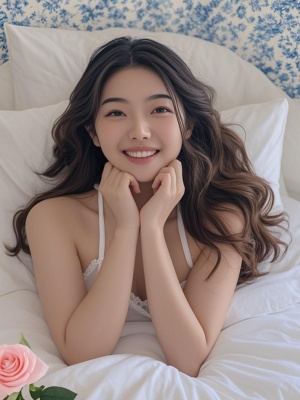The Timeless Art of Old Portrait Painting: A Journey Through History and Technique
Introduction: The Enduring Legacy of Portrait Painting
Old portrait painting represents one of the most fascinating chapters in art history, capturing not just likenesses but the very essence of human experience across centuries. From Renaissance masters to Victorian portraitists, these works serve as historical documents, artistic achievements, and psychological studies all in one. In this comprehensive exploration, we'll examine the key aspects that make old portrait paintings so valuable to art collectors, historians, and enthusiasts alike.
For those interested in transforming modern photos into classical portrait styles, AI painting techniques now make this possible while preserving the essence of traditional methods.
The Evolution of Portrait Painting Techniques
From Egg Tempera to Oil: Mediums Through the Ages
The materials used in old portrait painting evolved dramatically over time:
- Early Renaissance: Egg tempera on wood panels
- 15th Century: Oil painting revolutionized by Flemish masters
- 18th Century: Development of portrait miniatures in watercolor
- 19th Century: Introduction of premixed paints in tubes
Composition and Symbolism
Old masters employed sophisticated techniques to convey meaning:
- Strategic placement of hands to indicate status
- Background elements revealing profession or interests
- Color symbolism in garments and accessories
- Lighting techniques to create psychological depth
Problems and Solutions in Portrait Conservation
The preservation of old portrait paintings presents unique challenges that conservators must address:
| Problem | Solution |
|---|---|
| Cracked paint layers (craquelure) | Microscopic consolidation with reversible adhesives |
| Yellowed varnish | Careful solvent cleaning under magnification |
| Canvas weakening | Lining with modern conservation-grade fabrics |
| Fading pigments | Controlled lighting and environmental conditions |

Recognizing Masterpieces: Key Artists and Styles
Several artists defined the golden age of portrait painting:
- Hans Holbein the Younger: Precision and psychological insight
- Titian: Luminous color and dynamic compositions
- Rembrandt van Rijn: Unparalleled mastery of light and shadow
- John Singer Sargent: Loose brushwork capturing personality
For those inspired to create their own classical portraits, modern photo restoration techniques can help achieve similar effects digitally.
The Modern Relevance of Old Portrait Techniques
While we live in a digital age, the principles of old portrait painting remain remarkably relevant:

Contemporary artists continue to study these methods because they:
- Teach fundamental observation skills
- Demonstrate timeless composition principles
- Reveal the psychology of human expression
- Show the power of limited color palettes
As noted by the National Gallery, London, these historical techniques inform even the most cutting-edge digital art practices today.
Conclusion: Preserving the Past, Inspiring the Future
Old portrait painting represents more than just historical artifacts - they are masterclasses in human observation, technical skill, and artistic expression. Whether you're an artist seeking to improve your craft, a collector appreciating fine art, or simply someone fascinated by history, these works offer endless opportunities for study and enjoyment.
For those interested in experiencing classical portrait styles with modern convenience, explore our gallery of AI-generated classical portraits that honor these timeless traditions while embracing contemporary technology.